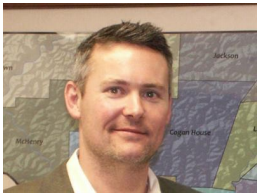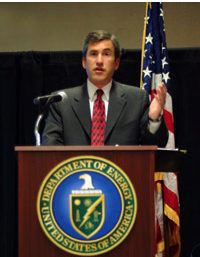Alongside releasing its controversial findings on fugitive methane emissions caused by hydraulic fracturing (“fracking”) on September 16, University of Texas-Austin also unveiled an industry-stacked Steering Committee roster for the study it conducted in concert with Environmental Defense Fund (EDF).
Stacked with former and current oil industry lobbyists, policy professionals and business executives, the Steering Committee is proof positive of the conflicts of interest evident in the roster of people and funding behind the “frackademia” study.
Only two out of the 11 members of the Steering Committee besides lead author and UT-Austin Professor David Allen have a science background relevant to onshore fracking.
That study found fugitive methane emissions at the well pad to be 2%-4% lower than discovered by the non-industry funded groundbreaking April 2011 Cornell University study co-authored by Anthony Ingraffea and Robert Howarth.
The Cornell study concluded fracking is worse for the climate than coal combustion when measured over its entire lifecycle.
Webster’s Dictionary defines a Steering Committee as “a committee, especially of a deliberative or legislative body, that prepares the agenda of a session.”
In the case of the EDF study – based on the oddly rosy findings – it seems plausible the industry-stacked Committee drove the report in a direction beneficial to oil industry profits rather than science.
Steering Committee: PR Pros, Lobbyists, Policy Wonks
The following is a list of Steering Committee members working for Big Oil.
1.) Ted Wurfel, Health, Safety, Environment and Operational Integrity Manager for Talisman Energy: Wurfel is one of two Steering Committee members besides lead author Allen with a science degree relevant to onshore drilling, with an engineering academic background, according to LinkedIn.

Ted Wurfel; Photo Credit: Pennsylvania Lobbying Disclosure website
He’s also a registered lobbyist in Pennsylvania – a state located in the heart of the Marcellus Shale basin – and formerly lobbied for Chief Oil and Gas.
2.) Paul Krishna, Manager of Environmental, Health & Safety Issues at ExxonMobil/XTO Energy: Krishna is the other Steering Committee member with a science degree relevant to onshore drilling, with an undergraduate degree in geology and a masters in geosciences.
3.) David McBride, Vice President of Environmental and Human Services at Anadarko Petroleum: McBride earned a degree in Marine Biology before going to law school and pursuing his career in the oil industry.
Photo Credit: LinkedIn
4.) Jeffrey Kupfer works as a non-registered lobbyist for Chevron – officially titled a “Senior Advisor for Government Affairs.” Kupfer sits on the Executive Board of the Marcellus Shale Coalition, the industry’s lobbying arm in Pennsylvania.
Jeffrey Kupfer; Photo Credit: U.S. Department of Energy
He sits on Pennsylvania Republican Gov. Tom Corbett’s industry-stacked Marcellus Shale Advisory Commission alongside one of the industry’s first “frackademics,” Terry Engelder of Penn State University.
Kupfer also sits on Maryland’s Marcellus Shale Safe Drilling Initiative Advisory Commission.
Prior to working for Chevron, Kupfer passed through the government-industry revolving door and worked as Deputy U.S. Secretary of State for President George W. Bush from 2006-2009 under former Secretary of State Condoleezza Rice. He also spent time as the State Department’s Chief Operating Officer under Rice.
Chevron is one of the dues-paying members of the Center for Sustainable Shale Development – described as the “Big Green Fracking Machine” by Public Accountability Initiative – alongside EDF.
5.) Dick Francis serves as Manager of Regulatory Policy for Shell Oil, another dues-paying member of the Center for Sustainable Shale Development.
6.) James Bolander serves as Senior Vice President Resource Development for Southwestern Energy.
7.) Susan Spratlen serves as head of Communications at Pioneer Resources and has an accounting undergraduate academic background.
8.) David Keane is BG Group’s Vice President of Policy and Corporate Affairs and has a business school academic background.
Keane testified on behalf of the Alaska Gas Pipeline (now known as the South Central LNG project) – co-owned by Transcanada, ExxonMobil, BP and ConocoPhillips – in front of the Alaska state legislature in February 2008.
He also serves on the Board of Directors of Center for Liquefied Natural Gas.
9.) Jill Cooper serves as Group Lead for the US Division of the Environment for Encana. Her academic background is in environmental law and she also has a masters in business.
Steering Off the Climate Cliff?
EDF‘s study has already won praise from the American Petroleum Institute, Energy in Depth, industry-funded propaganda film “FrackNation,” and the right-wing news website founded by Glenn Beck, The Blaze.
Greenpeace USA Executive Director Phil Radford’s worst case scenario has come true.
“At worst, [the study] will be used as PR by the natural gas industry to promote their pollution,” Radford wrote soon after the study’s release.
“In fact, methane is 105 times more powerful than carbon pollution as a global warming pollutant [during its first 20 years in the atmosphere], so figuring out its real climate impacts has very real consequences for us going forward.”
This raises the key question: could the Steering Committee’s agenda steer us all off the climate cliff?
Subscribe to our newsletter
Stay up to date with DeSmog news and alerts









